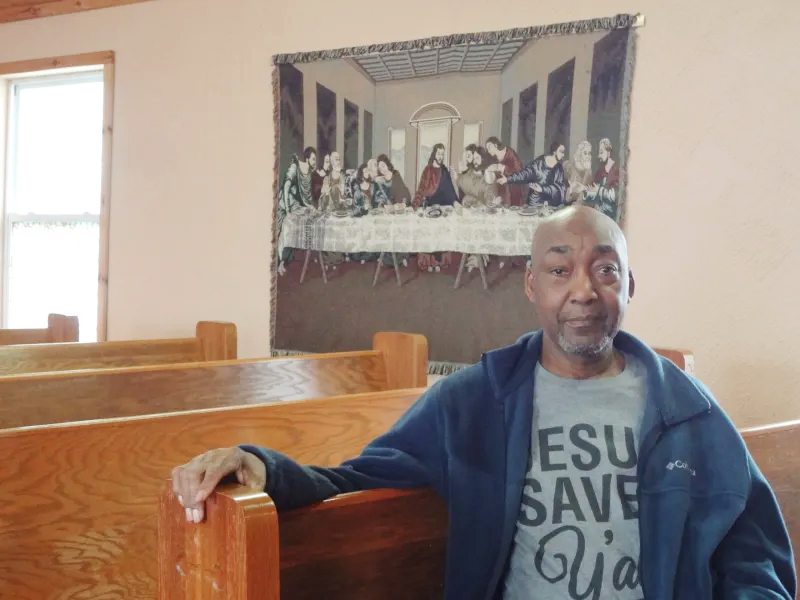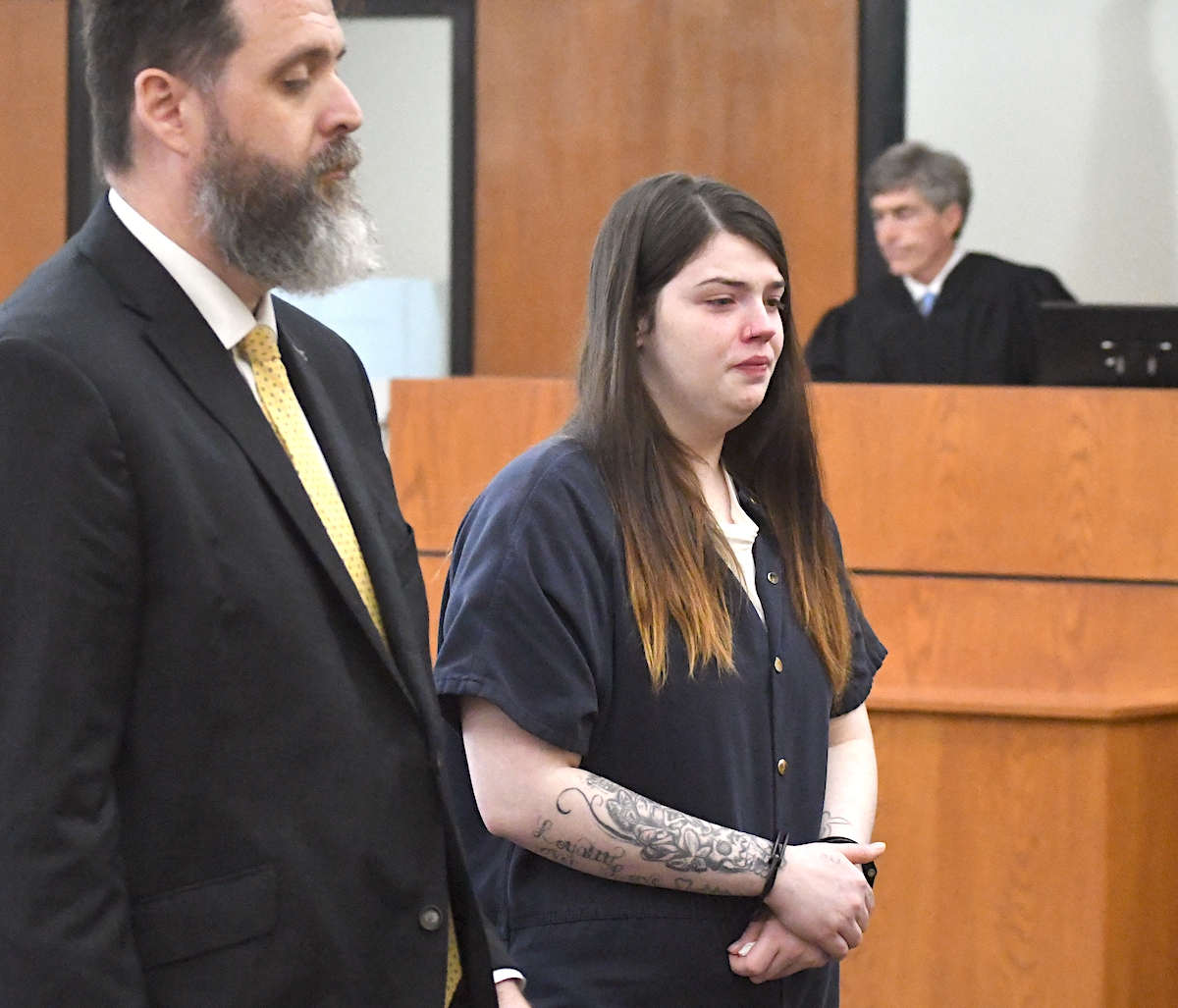A rural calling
Published 12:03 pm Wednesday, April 19, 2023

- Steve Peake says rural communities are worth saving. Daily Yonder photo by Taylor Sisk
BY TAYLOR SISK
The Daily Yonder
Steve Peake grew up surrounded by family. His grandmother, Molly Branson, observed the boy as he tended to the needs of his Eastern Kentucky coal camp elders.
“And she told my aunt, she said, ‘Out of all the children, this boy right here is going to be the one that stays here and takes care of you all,” Peake recalled. “My grandmother said that. It was prophecy fulfilled.”
To call the Rev. Steve Peake, now 70, a fixture in his community is a decided understatement. Through the years, he’s been a man Fleming-Neon can depend on, for spiritual, emotional, and material support. The flooding that devastated this region last July reinforced his standing.
Coal mining jobs are few here these days. Fleming in Letcher County, Kentucky, was founded as a coal-company town in 1913. The adjacent community of Neon was included when the city incorporated in 1977.
Fleming-Neon’s population was around 900 in 2000; 700 in 2010. By 2020, it had fallen to 548. Now, in the aftermath of a natural disaster, the appeals of staying put are even more elusive. Some have no choice. Some do. Peake is among those in the region who insist, in everyday gesture, that communities such as his own are well worth preserving and enriching.
As his friend of more than 50 years, the Rev. Lowell Parker, put it, “He’s a true-to-heart Eastern Kentucky man.”
“He’s preached in churches all up and down the creek bank around Neon and Fleming,” Parker said. But more, Parker attested, “He’s served the Lord on whatever avenue.” His ministry isn’t confined to four walls.
“He’s just one of those good old boys,” said Tom Haynes, his neighbor of some 40 years.
To take a slow ride with Rev. Peake down the rough narrow roads of this valley affirms Hayne’s observation. Each neighbor receives the soft friendly toot of an horn and the wave of one who’s known you well.
Peake appears attuned to the rhythms of a community in a way that only a lifetime of dedication affords. Countless times, friends and neighbors will assure you, he’s bent his back to the town and its residents. “I just kinda like this little one-horse town, you know?” he said, and the town is much appreciative.
Peake’s dad was a coal miner. His home and his church, Corinth Baptist, are in what was once the “colored section” of the coal camp. His family of 10 lived in a duplex built by the Elk Horn Coal Corporation: living room and kitchen, downstairs; upstairs, two bedrooms, three beds. Throughout most of his youth, the home had no running water.
White and Black children played together in the alley. On occasion, Peake was invited into a white family’s home for supper. “Our parents told us, ‘You eat at home.’ But that didn’t stop a hungry boy.”
Corinth Baptist was once a school for Black children. Peake attended a segregated school until the seventh grade. His guidance counselor advised him he wasn’t college material, but he knew otherwise, and set about proving it, first attending Alice Lloyd College in the next county in Pippa Passes, Kentucky, then Berea College, from which he graduated in 1974.
Back home, he worked for Appalachian Regional Hospital for 38 years as an operating room technician, in the business office, and in admissions.
In 1991, he was ordained in Corinth Baptist. His granddad had been a minister, and as a child, he was mesmerized by the very presence of the man. He’d sit at the foot of his cane-back rocking chair till the old man would holler to Peake’s mom, “Come in here and get this boy. I don’t know what’s wrong with him.” A call to the ministry seemed inevitable.
According to Parker, Rev. Peake is the type of minister who uses his education to prepare his message. “What you receive is instructions that you can follow through the word of God.”
Carrying that ministry into the community became urgent the night of July 27 of last year, when the rains fell at up to four inches an hour. Peake’s home, where he and his wife, Rose, raised their three daughters, took in a foot and a half of water. While the repairs have been extensive, other parts of the community fared worse. Peake’s work continued unabated.
Donations of food, supplies, and gift cards arrived from across the commonwealth and beyond. Corinth Baptist served as a distribution center. Peake and his grandson rode in a golf cart delivering produce door to door. Peake and Parker helped coordinate relief efforts in multiple counties.
The General Association of Baptists in Kentucky honored Peake with their Humanitarian Award for his efforts on the ministry’s behalf.
“Everybody’s getting things back together,” he said. “It’s taken a long time to get us back to where we are. But one thing we found is that people help each other out.”
Peake says that into the 1990s, it was understood that the line separating the white section of town from the “colored” section was an inviolable one. But they all had something in common.
“You know, we were all poor folks – though we didn’t know it till somebody came along and told us,” he said. “In these small towns, Blacks and whites got along fine.”
On the ride into town, Peake points out Tucker’s Cafe – where, to their amazement, the cigar-smoking white owner shouted to young Steve and his friends, “Boys, get up on them stools! You can eat in here!” And there is the first white church he ever entered, in which he and his Little League teammates filed in clean, pressed uniforms past a coach’s coffin.
Peake rides through town with the easy familiarity of someone who has spent a lifetime building community.
Nevertheless, few Black families remain in the community today. Most have left as opportunities dwindled. Soon, mixed-race families may outnumber them.
Haynes, who’s white, says though he and Peake have been friends for many years, they’ve grown closer in the aftermath of the flood. Rebuilding and recovery have had that effect. “It’s just what comes from the heart, I guess you might say,” Haynes said.
“There’s probably not anyone in Letcher County – no matter whether it’s male or female or the color of their skin – who doesn’t think a lot of Steve,” Rev. James Butler, who’s known him for 60 years, testified. “People just have a love and respect for him.”
“You know, people used to ask me, ‘Steve, aren’t you gonna leave? When are you going to move out of here?’ And I said, ‘Well, you know, I’m taking care of the elderly people.’ I said, ‘When they die out, then I’ll move.’”
The “last little lady,” who lived next door, passed at 105. Still, he stayed. This “little one-horse town” might just be a good fit.




